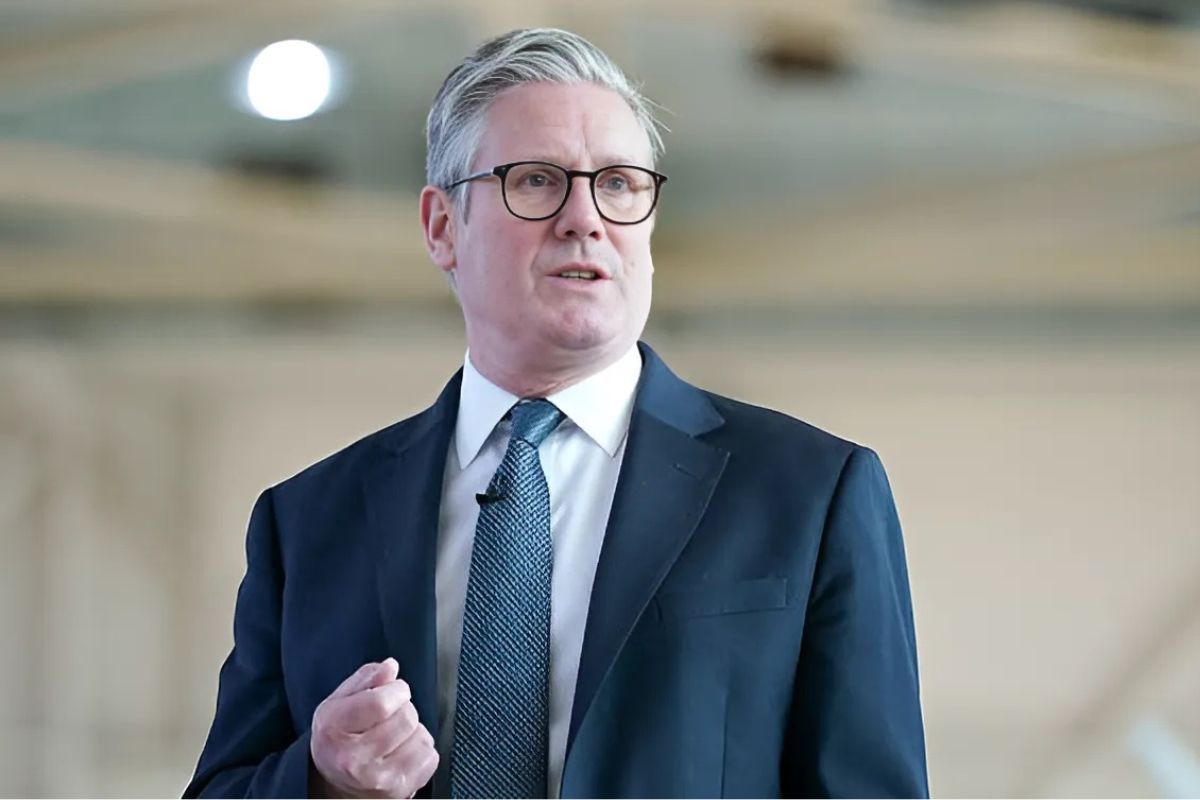UK-US Trade Relations Amid New Tariff Measures: Strategic Diplomatic Maneuvers and Future Prospects

Following the implementation of broad tariffs on all UK imports, Prime Minister Sir Keir Starmer has directly interacted with US President Donald Trump in a key point for transatlantic relations. Described by Mr. Trump as “liberation day,” the action represents a notable increase in the protectionist economic policy of the United States, therefore altering the course of trade between the UK and the US for years to come.
Leaders discussed the situation of bilateral trade negotiations during their first official meeting following the announcement of the tariffs. Downing Street insiders claim that the speech was marked as “ongoering and productive,” although the implementation of a uniform 10% tax on UK goods and an additional 25% levy on car imports marks the beginning of a difficult and maybe protracted period of trade conflict.
Strategic Objectives: UK’s Emphasis on Free Trade and National Interests
While stressing the need to defend national economic interests, Sir Keir reaffirmed the constant dedication of his government to free and honest trade. Chancellor Rachel Reeves, who underlined in later remarks that any solution has to give British sovereignty and economic resilience top priority, mirrored this message.
During the International Monetary Fund (IMF) spring sessions, Ms. Reeves is expected to fly to Washington, D.C., for important conversations with senior Biden administration members. UK officials believe that US Treasury Secretary Scott Bessent could be very important in negotiating concessions or exemptions to help to reduce the load of the recently imposed taxes.
Economic Implications of the Tariff Regime
The tariffs have caused waves in global markets and raised questions for UK manufacturers and exporters. Especially affected are the aluminum, steel, and automotive sectors, which today encounter significant obstacles to US market entrance. With thousands of jobs linked to US-bound exports, the 25% duty on automotive imports has heightened fears among Britain’s car manufacturing regions.
Targeting UK-assembled vehicles, the 25% tax on the automotive industry affects key economic sectors.
Aluminum and steel: Current taxes stay in place with room for rises.
General items: A ten percent blanket tariff affects everything from consumer items to medications.
Political Calculus: US Strategy and Future Trade Dynamics
Citing strong income generation from the tariffs as a strategic asset, President Trump has indicated no rush to complete trade agreements. “We’re in no rush,” he said, implying that unless the UK more closely conforms with US expectations—perhaps including restrictions on UK-China economic cooperation—current negotiations may go long beyond 2025.
The White House has not, however, totally closed the door to upcoming collaboration. Vice President JD Vance said the government is looking for a “great” trade agreement with Britain and acknowledged President Trump is “working very hard” to get suitable conditions. Still, viewers point out that the tariffs are a negotiating tactic as well as an economic instrument used to force the UK to rethink certain geopolitical ties.
Diplomatic Engagements: Navigating Washington’s Policy Landscape
Under a dual-track approach, British negotiators—including Chancellor Reeves—will interact with pro-trade groups inside the US government while keeping a strong posture on national economic autonomy. Reeves has already made it very evident that the UK will not cut off relations with Beijing in order to satisfy American needs only. “It would be foolish,” she said, stressing the need for varied world economic partnerships.
Future Scenarios: Strategic Trade Pathways
First scenario: Full Trade deal
The imposed tariffs might be progressively phased out in a full-spectrum UK-US trade deal. On digital commerce, regulatory harmonization, and third-party trade relations—notably with China—this would probably call for major changes in UK policies.
Second scenario: Sectoral Exemptions
Targeted exemptions for vital industries such as aircraft, medicines, and green technologies—areas where shared interests between the UK and US already coincide—are a more likely short-term result.
Third scenario: Pulled Stalemate
Should the Trump administration intensify protectionist tactics, the present tariffs might become a semi-permanent feature, forcing the UK to turn more forcefully towards non-US markets such as the EU, India, and Indo-Pacific nations.
Finally, the High-Stakes Road Ahead
The present standoff between the US and the UK reflects a more general realignment in world trade policies. Britain has to strike a balance between its transatlantic aspirations and the pragmatic need of economic diversification and sovereign decision-making. The focus will be very much on Chancellor Reeves and her capacity to negotiate a road forward that preserves British businesses and promotes a sustainable trade relationship with the United States as the IMF spring conferences draw near.
Success will rely on diplomatic grace as much as economic strategy—a talent tested as Britain negotiates this stormy period in international commerce.






